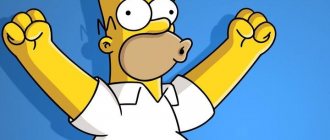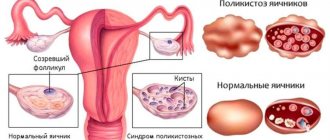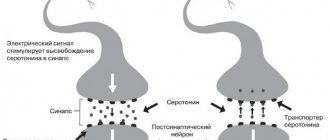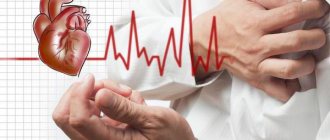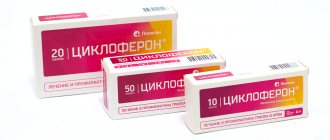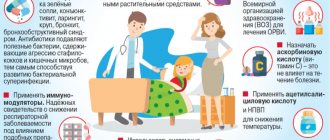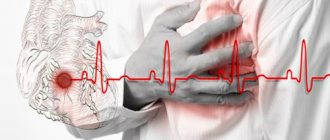The best treatment for depression is comprehensive. A specialist (psychotherapist or psychiatrist) creates an individual treatment plan and, based on the examination, selects only those components that correspond to the indications and contraindications. Typically, these are antidepressants combined with some other medications for depression, stress, and anxiety. The patient takes prescribed medications for depression until there is a therapeutic effect or stable remission. Treatment of depressive conditions takes quite a long time. As a rule, therapy lasts from 1.5 to 7 months.
Features of prescribing drugs to calm nerves and against depression
Medicines for depression and anxiety have a pronounced effect; these are potent drugs that have a number of contraindications and side effects if the doctor’s prescription and instructions for use are not followed.
This is why you cannot buy medications for depression without prescriptions in our country. It is impossible to either prescribe or stop taking anti-depression medications on your own; this can affect mental health and lead to the development of depressive conditions and even suicidal thoughts. Therefore, it is very important to follow all the doctor’s recommendations, take medications for depression and stress in the dosage in which the doctor prescribed them. Even if a person’s mood improves after a week and the main symptoms disappear, they cannot stop taking the medicine.
The drug method is quite effective for anxiety-depressive disorders and neurotic conditions. It is important that the diagnosis of depression be made by a specialist, since taking medications simply to lift your mood in the absence of mental abnormalities can only cause a number of side effects. Antidepressants, antipsychotics and tranquilizers are potent drugs that are prescribed only with a doctor-confirmed diagnosis. Self-medication is unacceptable. Next, we will consider the main medications for stress and depression that are prescribed to patients.
- You can't convince me to get treatment
? - We will help you with motivation for treatment. As a rule, it is difficult for loved ones to persuade or force an addict to undergo treatment. World experts have developed EFFECTIVE motivation schemes, using which you can lead an addict to the decision to seek help. 8
Overdose
MAOI antidepressants are extremely toxic in overdose, and symptoms of intoxication do not necessarily appear immediately. In acute poisoning with large doses of MAOIs, general weakness, dizziness, ataxia, slurred speech, and clonic muscle twitching are observed; this is followed by the development of comatose states or convulsive seizures (such as generalized epileptiform seizures) followed by coma. After emerging from a coma, the stunned state may persist for some time. In some cases, coma does not occur, and the initial symptoms of overdose are replaced by delirious syndrome. Impaired consciousness in case of MAOI overdose is not always observed; in cases where they are absent, the depression that caused the prescription of MAOIs very quickly, paroxysmally, gives way to euphoria.
Manifestations of overdose may also include anxiety, confusion, hypertensive crisis, cardiac arrhythmias, rhabdomyolysis, and coagulopathies.
Due to the high toxicity of MAOIs, they should be prescribed to patients with suicidal tendencies in quantities sufficient for only a few days of use.
Antidepressants
Should I take antidepressants for severe depression? Many people believe that such drugs are addictive. If previously drugs that could cause addiction and drug dependence were used in psychotherapy, today new generation drugs are used that affect the human body and psyche more gently and sparingly.
Among the reasons for mistrust in the use of antidepressants for depression is the fact that if the course of treatment is interrupted, a person may feel worse. If withdrawal symptoms occur, this indicates incorrect discontinuation of the prescribed drug. You should not perceive this reaction of the body as dependence on pills.
If you stop the artificial synthesis of brain neurotransmitters, their quantity in the human body will drop sharply. Patients feel that their depression or anxiety disorder is returning as anxiety increases. Any changes in your condition should be reported to your doctor. The specialist knows how to smoothly discontinue the prescribed medication. In combination with psychotherapy, pharmacotherapy works well, giving long-term results.
There are several groups of medications for anxiety and depression.
Tricyclic
The first group includes medications that have a three-cyclic structure; they are not sedatives and prevent the immediate breakdown of neurotransmitters (serotonin and norepinephrine). They do not disappear from the nerve endings, their synthesis increases, as does the amount of serotonin. These medications have a number of contraindications; they are not recommended for people who have kidney and liver diseases, glaucoma, atherosclerosis, or use of narcotic substances.
Monoamine oxidase inhibitors (MAOIs)
MAOIs are monoamine neurotransmitters that regulate our emotions, as well as a number of processes in the brain: attention, cognitive functions, memory, arousal. Due to the inhibition of leasing, the amount of monoamines increases and their accumulation in nerve endings. Some groups of these drugs are contraindicated for pregnant women and people with work that requires concentration, as well as for hypertensive patients.
Selective serotonin uptake inhibitors (SSRIs)
The third group of drugs for the treatment of depression includes selective serotonin uptake inhibitors.
Medicines are prescribed to replenish “happiness hormones”. Do not think that this happens quickly; the process of restoration of neurotransmitters is gradual. SSRIs have one important advantage - when the drugs are abruptly stopped, there is no withdrawal syndrome. Contraindications to their use include diseases of the genitourinary system, as well as alcoholism and drug addiction. If a person has developed alcoholism due to depression, he should not take antidepressants, since alcohol increases the side effects of the medication for depression. Symptoms of the disorder may increase significantly and the condition may worsen. Quite often, psychological reasons cause the development of alcohol dependence; the risk of depression in alcoholics is several times higher than in healthy people. The first group of anti-depression drugs is especially dangerous to combine with ethanol, as this leads to a sharp increase in blood pressure.
Which antidepressant is best for anxiety and depression? Your doctor will answer this question; the choice of medications should always take into account the individual characteristics of the patient’s body.
Do you want to know about the cost of services?
8 call our specialist
Varieties
Drugs in this class are divided into three groups:
- irreversible indiscriminate,
- irreversible selective,
- reversible selective.
Irreversible antidepressants destroy the monoamine oxidase molecule. Reversible ones only contact her, depriving her of activity for several hours.
There are 2 types of enzyme - A and B. Only the first type is mainly involved in deamination of neurotransmitters. According to this principle, drugs are divided into two types. The first type, non-selective monoamine oxidase inhibitors, is active against both types of enzyme. Selective inhibitors act mainly on the first type, but there are also inhibitors that are active only against the second type.
Non-selective irreversible agents include:
- iproniazid,
- isoniazid,
- nialamide,
- isocarboxazid,
- phenelzine
Reversible inhibitors:
- moclobemide (trade name Aurorix),
- pirlindol (trade name Pyrazidol),
- befol,
- metralindole,
- harmaline
Reversible inhibitors are somewhat inferior in potency to irreversible inhibitors, but are safer to use and have fewer side effects.
The best known irreversible selective inhibitors are selegiline and rasagiline.
Tranquilizers for depression and neurosis
Kinds:
- sleeping pills;
- sedatives;
- muscle relaxants.
In the first case, there is a significant reduction in anxiety, the quality of sleep improves and the duration of sleep increases. Doctors do not recommend taking sleeping pills for a long time or independently extending the period of use prescribed by a specialist, since drugs in this group can cause drug dependence. Because of this feature, sleeping pills are popular among pharmacy drug addicts.
Sedatives have a positive effect on the central nervous system; they can be either herbal or synthetic and have a rather mild effect on the central nervous system. They help restore balance between the excitation and inhibition systems, enable a person to react more calmly to stressful situations and eliminate sleep problems.
Muscle relaxants are medications that reduce the tone of the skeletal muscles and reduce motor activity. They block H-cholinergic receptors and stop the supply of impulses to the muscles, due to which they stop contracting.
Tranquilizers are used for depression and panic attacks, sleep problems, as well as for:
- behavioral and mental disorders;
- neuroses;
- psychosis;
- personality disorders;
- causeless fears;
- schizophrenia;
- when relieving abstinence from alcohol and drug addiction;
- eczema;
- anorexia;
- bulimia;
- arrhythmias;
- hypertension.
In some cases, these psychotropic drugs are prescribed to children.
Medicines of this group should not be used by people with alcohol or drug intoxication. Doctors do not recommend medications for the treatment of neuroses and depression and for work involving increased concentration, including for drivers. As with the treatment of depression with antidepressants, to reduce the risk of withdrawal symptoms when stopping the medication, it is necessary to reduce the dosage gradually. Your doctor should tell you about this. In addition, a long course of its use is fraught with the development of drug dependence, so the course is divided into short periods. Pregnant and lactating women should not use tranquilizers.
The drugs help cope with stress, make it easier to endure traumatic situations, eliminate fears, phobias, and panic attacks without suppressing cognitive functions. Often tranquilizers help eliminate sleep problems, frequent awakenings, insomnia at night, and drowsiness during the day. In the treatment of psychosis, these medications are used as part of complex therapy that help eliminate the side effects of antipsychotics. But the drugs themselves have various side effects, including muscle weakness, lethargy, decreased concentration and reactions, libido, memory impairment, drop in blood pressure, and nausea.
Tranquilizers are quite dangerous drugs, some of them are classified as pharmaceutical drugs, since if the duration of treatment and dosage are violated, psychophysical dependence can occur. They are also known to be used for recreational purposes. If you notice that your loved one has been taking the same medication for a long time, you should seek help from the Center for Healthy Youth. We work throughout Russia. Application is free and anonymous.
Anonymous 24 hours a day Activity is licensed Patient accompaniment
Full range of narcology services:
- tests
- drug testing
- detox
- encoding
- psychiatry
- binder
- withdrawal symptoms
8+7
MAOIs withdrawn from circulation
There are other MAOI drugs that have been discontinued due to severe side effects. Most were sold throughout the 1950s and 1960s, but were withdrawn due to severe liver damage. Below is the list:
- Benmoxine . It was created in 1967 and was used as an antidepressant throughout Europe.
- Caroxazone (Surodil/Timostenil) . This drug affected MAO-B 5 times more than MAO-A. Eventually it was discontinued.
- Iprocloside (Sursum) . It was withdrawn from sale until 1980 due to the fact that three people died as a result of its sale. The study found that it leads to symptoms of jaundice followed by acute liver failure.
- Iproniazid . This drug was developed specifically for the treatment of tuberculosis, but, as it turned out, has an antidepressant effect. It was approved in the late 1950s, but was later withdrawn from the market due to severe liver damage.
- Mebanazine (Actomol) . Used throughout the 1960s to treat depression, but has since been withdrawn from sale.
- Minaprine (Cantor) . Used throughout France until 1996. It was eventually discontinued due to seizures.
- Niamide (Nialamide) . Chemically similar to Iproniazid as a derivative of isonicotinic acid. It was withdrawn by Pfizer from the United States, United Kingdom and Canada in 1963 due to liver damage.
- Octamoxin (Ximaol/Nimaol) . It was used to treat depression but was removed from the market in the 1960s.
- Pheniprazine (Katron) . It was used to treat depression throughout the 1960s and was prescribed in some cases for schizophrenia. Various side effects associated with this drug included: eye damage and jaundice. As a result, it was deemed unsafe and withdrawn from the market.
- Pivalbenzhydrazine (Tersavid) . It was widely used throughout the 1960s to treat depression, but has since been removed from the market.
Antipsychotics for depression and anxiety
Today, drugs such as antipsychotics are actively used in the treatment of depression and neuroses. They eliminate panic fears, anxiety, and normalize sleep patterns.
Doctors classify them depending on their chemical structure.
- Dibenzazepines are necessary to combat psychotic manifestations, they are perfectly combined with other medications, but they have a minimal sedative effect and have quite a few adverse reactions.
- Aliphatic phenothiazines have a greater sedative and calming effect and eliminate sleep problems.
- Phenothiazine derivatives are used in the presence of pain and problems with blood vessels.
- Butyrophenones are drugs that are used in medicine to combat delusional disorders and hallucinations; they have practically no sedative effect.
There are 2 types of antipsychotics: typical and atypical (as well as those with prolonged and non-prolonged action). In the first case, these are drugs that are already a thing of the past; they did a really good job with their main task - relieving psychotic symptoms, but had a fairly large number of undesirable side effects.
In the second case, the use of atypical antipsychotics is more modern. These are the latest generation drugs, antipsychotics, which have virtually no side effects. If drugs have a prolonged effect, this means that they have a long-term effect on the body, for example, for a month.
Nootropics for depression and asthenia
Nootropic drugs, also known as cerebroprotectors or neurometabolic stimulants, are an effective means for a specific effect on higher mental functions. It increases the resistance of the central nervous system to the effects of negative factors of traumatic episodes. Nootropics have a positive effect on a person’s intellectual and cognitive abilities, help them improve memory, concentrate on what’s important, increase learning ability and stress resistance.
These psychotropic medications are divided into the following groups:
- true;
- neuroprotectors;
- primary action;
- secondary action;
- neuroregulatory.
They have various effects: anticonvulsant, muscle relaxant, mnestic, antihypoxic, help with ischemia and intoxication, improve metabolism and metabolic processes in the central nervous system, and neurotransmitter metabolism.
Contraindications include pregnancy and lactation, stomach ulcers, kidney and liver diseases, and allergic reactions to the components of the drug. Before prescribing them, the doctor examines the patient and takes a urine test during the course of therapy to obtain accurate data on the results of treatment.
Effective drugs for depression
Phenazepam
This is perhaps the most common drug in addiction medicine and psychiatry.
However, it is popular not only because it is highly effective in the treatment of anxiety disorders, but also because it is a dangerous pharmaceutical drug that causes addiction. That is why the duration of the course of treatment and dosage are controlled by the doctor. You cannot buy Phenazepam at a pharmacy without a doctor's prescription. This is a benzodiazepine that affects the central nervous system and is a potent drug. Today, the tranquilizer is used less and less, as it has a fairly large list of side effects, including drug addiction. It has a sedative and hypnotic effect.
Afobazole
An innovative modern drug is used for depression and neurosis. It eliminates anxiety, restlessness, relieves tension and stress, does not cause drowsiness, and has a minimum of side effects. The medication is a neuroprotector, protects nerve cells, stabilizes GABA receptors.
Mexidol
The purpose of antioxidants is to protect the body from dangerous substances that damage cells and adversely affect human health. The drug is prescribed to patients after a head injury, in the presence of abnormalities in the cerebral circulation, or stress. Mexidol is used in the treatment of encephalopathy, ischemic heart disease and VSD.
Magnesium
Our body cannot function normally without magnesium. This substance is involved not only in metabolic processes, but also affects the functioning of the central nervous system. That is why it is necessary to compensate for the existing magnesium deficiency in cases of depressive disorders.
Quetiapine
The drug affects serotonin receptors to a greater extent than dopamine receptors. Therefore, for depression it is prescribed quite rarely, or in minimal doses. Most often used for more severe illnesses, dementia, Alzheimer's or Parkinson's disease. Contraindications are oncology, hypotension, heart attack, diseases of the cardiovascular system and liver.
Amitriptyline
The drug increases the concentration of norepinephrine and serotonin and inhibits their reuptake. It is used in the presence of psycho-emotional disorders, psychosis, anxiety, insomnia, depression. It is not recommended to take if you have binge drinking and alcoholism, gastrointestinal diseases, or pregnancy.
Atarax
Inhibits the work of the central nervous system, is prescribed for mental disorders, psychomotor agitation, nervousness, anxiety, irritability. Do not use during pregnancy or individual intolerance to the components of the drug.
Contraindications
The use of antidepressants of this type is prohibited if:
- withdrawal syndrome,
- exacerbations of liver and kidney diseases,
- pregnancy,
- lactation,
- increased sensitivity.
Non-selective irreversible inhibitors are also contraindicated in chronic heart and kidney failure, and cerebrovascular accidents. Irreversible selective inhibitors are not prescribed together with other antidepressants. Non-selective inhibitors also affect the liver metabolism of many drugs, such as barbiturates, antihistamines, antihypertensives, and antidepressants.
Treatment for depression without a prescription
Don’t think that you can buy medications for stress and depression without prescriptions. Also, do not be mistaken about self-medication. Depression is not just a bad mood or blues, but a real mental disorder that can be treated not only with medications, but also with long-term work with psychologists, psychotherapists or psychiatrists. If you regularly have thoughts of suicide, have no appetite, or have disrupted sleep patterns, you should consult a specialist.
However, you can improve your mood and avoid illness if you use the following as preventative measures:
- sport;
- trips;
- breathing exercises;
- creative activities;
- bathing in hot baths;
- drinking green tea;
- aromatherapy;
- meditation.
Physical education and physical exercise help synthesize new neural connections that have a beneficial effect on the functioning of the nervous system and a person’s mood. Just 30 minutes of exercise a day and you won't be in a bad mood. Dancing is no less beneficial for the activity of brain cells. Art therapy helps to get rid of negative emotions, relieves stress, breathing exercises help to better supply the brain with oxygen. Green tea or tomato juice will help cope with stress. Inhaling essential oils also regulates mood. A hot bath will help you relax and normalize your emotional state before bed.

